BMW X1 vs BMW iX1 – Differences & prices compared
Compare performance, boot space, consumption and price in one view.
Find out now: which car is the better choice for you – BMW X1 or BMW iX1?
The BMW X1 (SUV) comes with a Diesel MHEV, Petrol MHEV, Plugin Hybrid, Petrol or Diesel engine and Automatic transmission. In comparison, the BMW iX1 (SUV) features a Electric engine with Automatic transmission.
When it comes to boot capacity, the BMW X1 offers 540 L, while the BMW iX1 provides 490 L – depending on how much space you need. If you’re looking for more power, decide whether the 326 HP of the BMW X1 or the 313 HP of the BMW iX1 suits your needs better.
In terms of consumption, the values are 0.80 L per 100 km for the BMW X1, and 15.80 kWh for the BMW iX1.
Price-wise, the BMW X1 starts at 38200 £, while the BMW iX1 is available from 41800 £. Compare all the details and find out which model fits your lifestyle best!
In the realm of compact SUVs, the BMW iX1 and BMW X1 stand out for their impressive blend of performance and luxury. While the X1 offers a traditional combustion engine experience, the fully electric iX1 embraces the future with zero emissions and a tech-savvy interior. Both models deliver exceptional handling and comfort, but the choice ultimately hinges on whether drivers prioritize sustainability or prefer the classic driving dynamics of a gasoline-powered vehicle.
BMW X1
The new BMW X1 effortlessly blends sporty elegance with practical functionality, making it a standout choice in the compact SUV segment. Inside, the sophisticated cabin design is complemented by high-quality materials and cutting-edge technology, creating a welcoming and advanced driving environment. On the road, the vehicle's agile handling and responsive performance promise an engaging driving experience, whether navigating urban streets or embarking on longer journeys.
details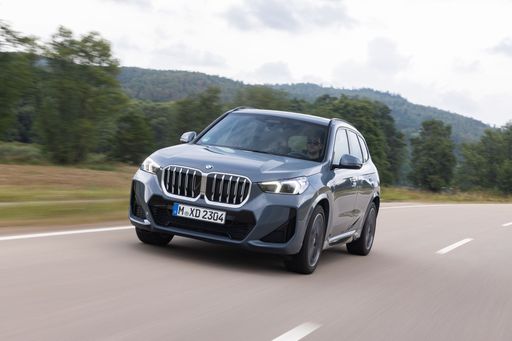 @ press.bmwgroup.com
@ press.bmwgroup.com
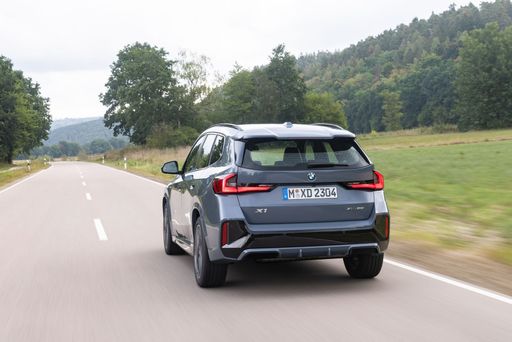 @ press.bmwgroup.com
@ press.bmwgroup.com
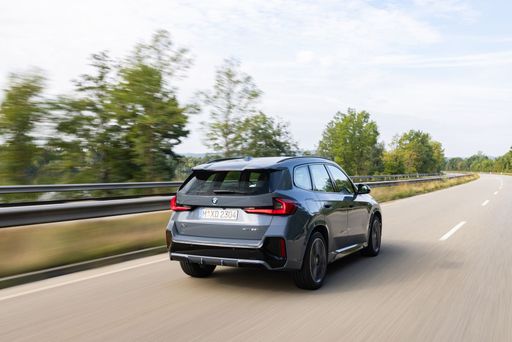 @ press.bmwgroup.com
@ press.bmwgroup.com
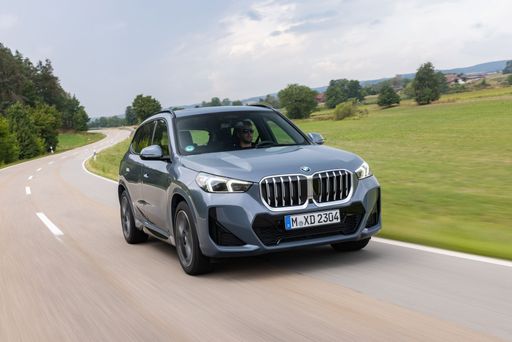 @ press.bmwgroup.com
@ press.bmwgroup.com
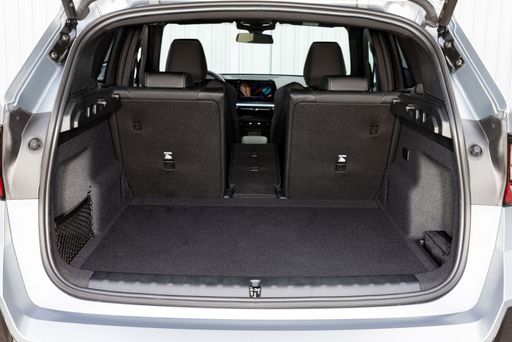 @ press.bmwgroup.com
@ press.bmwgroup.com
BMW iX1
The BMW iX1 stands out as a versatile addition to the electric vehicle market, seamlessly combining compact dimensions with advanced electric technology. Its sophisticated design elements and premium interiors ensure a luxurious driving experience, while the vehicle's performance focuses on delivering both efficiency and agility. With enhanced connectivity features and an emphasis on sustainability, this model represents a significant step forward in BMW's commitment to a greener future.
details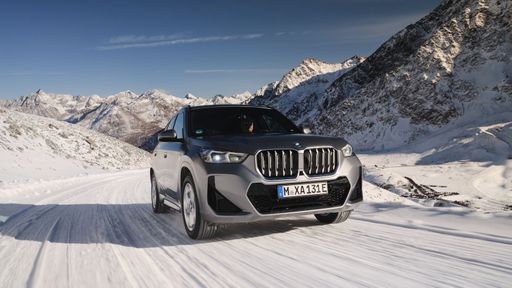 @ press.bmwgroup.com
@ press.bmwgroup.com
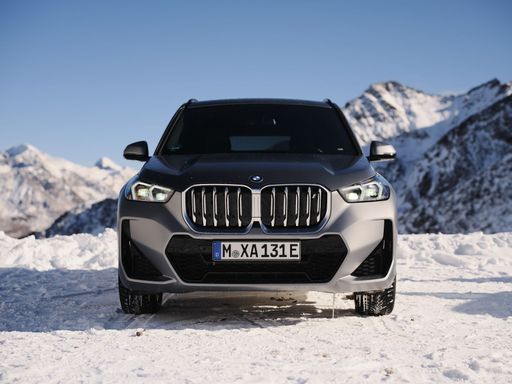 @ press.bmwgroup.com
@ press.bmwgroup.com
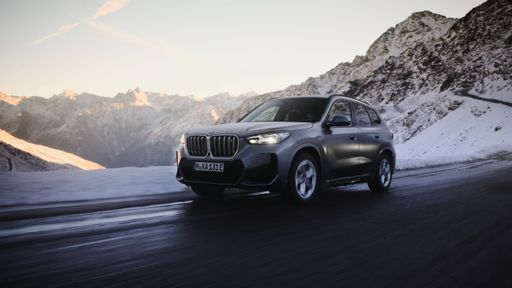 @ press.bmwgroup.com
@ press.bmwgroup.com
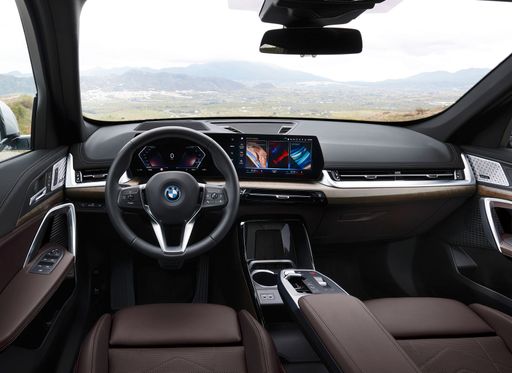 @ press.bmwgroup.com
@ press.bmwgroup.com
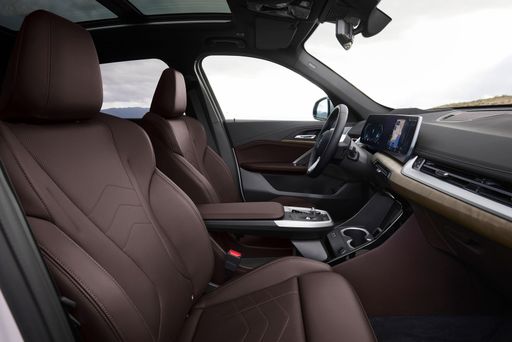 @ press.bmwgroup.com
@ press.bmwgroup.com
BMW iX1 vs BMW X1: A Comprehensive Comparison
The battle between the BMW iX1 and the traditional BMW X1 illustrates the automotive industry's transition toward electrification and innovation. Both models offer distinct advantages and cater to different sets of preferences, but how do they stack up against each other on various fronts? Let’s dive deeper into the details.
Technical Specifications Overview
The BMW iX1 is an electric SUV powered solely by electricity, while the X1 is available with a range of petrol, diesel, and hybrid engine options. The iX1 showcases a performance lineup with power output ranging from 204 to 313 HP from dual electric motors, boasting an impressive torque range of 250 to 494 Nm.
Conversely, the BMW X1 offers multiple engine variants, including four-cylinder petrol and diesel engines as well as mild and plug-in hybrid options, delivering up to 326 HP and torque figures reaching 477 Nm. The choice between energy sources is critical for consumers, with the iX1 presenting a zero-emissions profile compared to the X1’s varied fuel economy of 4.6 to 6.5 L/100km for its internal combustion engines.
Electric Efficiency vs Fuel Efficiency
When considering consumption, the iX1 excels with figures of 15.8 kWh/100km in the standard variant and up to 17.1 kWh/100km in the more powerful version. This equates to an impressive electric range between 436 and 463 km, making it ideal for both urban commutes and longer journeys.
On the other hand, the X1 manages fuel consumption ranging from 4.6 to 6.5 L/100km, depending on the engine choice. While still efficient, it doesn’t match the iX1’s commitment to sustainability, especially regarding CO2 emissions, where the iX1 boasts a remarkable 0 g/km.
Performance and Acceleration
Acceleration is another point of interest in this comparison. The iX1 can sprint from 0 to 100 km/h in 8.6 seconds for the base model and a blazing 5.6 seconds for the higher-powered variant. This impressive performance is typical for electric vehicles, attributed to their ability to deliver instant torque.
The X1, depending on the engine, offers similar capabilities, with top models achieving 0-100 km/h in as little as 5.4 seconds. This places it in the realm of sporty performance, ensuring that enthusiasts have a powerful choice if they opt for the traditional petrol or diesel configuration.
Interior and Space
Both BMW models comfortably seat five passengers and share a similar length of approximately 4.5 meters. However, the iX1 has a trunk capacity of 490 liters, while the X1 slightly edges out with up to 540 liters, depending on the variant. This could be a decisive factor for families or those requiring extra storage space.
Innovations and Technology
In terms of technology, both SUVs come equipped with the latest BMW iDrive system, offering intuitive controls, sleek displays, and a host of connectivity options. The iX1 takes it a notch higher with enhanced integration for electric vehicle features such as charging station localization and range prediction, crucial for electric vehicle enthusiasts.
The X1, with its plug-in hybrid variants, provides a blend of electric-enhanced performance and traditional driving pleasure. It utilizes cutting-edge hybrid systems to optimize fuel efficiency while delivering on-demand power and range, giving drivers the best of both worlds.
Conclusion: Which One Should You Choose?
The choice between the BMW iX1 and X1 largely depends on your preference for powertrain technology. If you’re seeking a sustainable, electric-only option that promises zero emissions and robust performance, the iX1 is an excellent choice. Conversely, if you value greater versatility in engine options, including traditional fuels and hybrids, the BMW X1 stands out as a strong contender offering various configurations suited to diverse driving needs.
Ultimately, both models carry the BMW legacy of luxury, performance, and innovation, ensuring that whichever you choose, satisfaction is guaranteed.

|

|
|
|
|
Costs and Consumption |
|
|---|---|
|
Price
38200 - 55500 £
|
Price
41800 - 54600 £
|
|
Consumption L/100km
0.8 - 7.7 L
|
Consumption L/100km
-
|
|
Consumption kWh/100km
-
|
Consumption kWh/100km
15.8 - 17.1 kWh
|
|
Electric Range
81 km
|
Electric Range
436 - 463 km
|
|
Battery Capacity
14.20 kWh
|
Battery Capacity
64.80 kWh
|
|
co2
18 - 175 g/km
|
co2
0 g/km
|
|
Fuel tank capacity
47 - 54 L
|
Fuel tank capacity
-
|
Dimensions and Body |
|
|---|---|
|
Body Type
SUV
|
Body Type
SUV
|
|
Seats
5
|
Seats
5
|
|
Doors
5
|
Doors
5
|
|
Curb weight
1575 - 1935 kg
|
Curb weight
1940 - 2085 kg
|
|
Trunk capacity
490 - 540 L
|
Trunk capacity
490 L
|
|
Length
4500 - 4505 mm
|
Length
4500 mm
|
|
Width
1845 mm
|
Width
1845 mm
|
|
Height
1622 - 1642 mm
|
Height
1616 mm
|
|
Payload
490 - 500 kg
|
Payload
495 kg
|
Engine and Performance |
|
|---|---|
|
Engine Type
Diesel MHEV, Petrol MHEV, Plugin Hybrid, Petrol, Diesel
|
Engine Type
Electric
|
|
Transmission
Automatic
|
Transmission
Automatic
|
|
Transmission Detail
Dual-Clutch Automatic
|
Transmission Detail
Reduction Gearbox
|
|
Drive Type
Front-Wheel Drive, All-Wheel Drive
|
Drive Type
Front-Wheel Drive, All-Wheel Drive
|
|
Power HP
136 - 326 HP
|
Power HP
204 - 313 HP
|
|
Acceleration 0-100km/h
5.4 - 9.2 s
|
Acceleration 0-100km/h
5.6 - 8.6 s
|
|
Max Speed
190 - 250 km/h
|
Max Speed
170 - 180 km/h
|
|
Torque
230 - 477 Nm
|
Torque
250 - 494 Nm
|
|
Number of Cylinders
3 - 4
|
Number of Cylinders
-
|
|
Power kW
100 - 240 kW
|
Power kW
150 - 230 kW
|
|
Engine capacity
1499 - 1998 cm3
|
Engine capacity
-
|
General |
|
|---|---|
|
Model Year
2023 - 2025
|
Model Year
2022 - 2023
|
|
CO2 Efficiency Class
D, E, B, F
|
CO2 Efficiency Class
A
|
|
Brand
BMW
|
Brand
BMW
|
BMW X1
The New BMW X1: A Fusion of Innovation and Performance
For those in search of a luxury SUV that masterfully combines technical innovation with driving pleasure, the BMW X1 stands as a paragon of design and engineering excellence. As part of the competitive compact SUV segment, the BMW X1 offers a robust array of features targeted towards both the tech-savvy and the driving enthusiast.
Advanced Engine Options
The BMW X1 delivers a versatile range of powertrains to suit the specific needs of different drivers. From the efficient diesel engines to cutting-edge plug-in hybrid variants, there’s a model for every preference. The diesel variants, including mild-hybrids, provide a balance between fuel efficiency and power delivery. Petrol engines, on the other hand, offer spirited performance with a more traditional feel.
Efficiency Meets Performance
The BMW X1's remarkable range of power, from 136 PS to an impressive 326 PS, caters to diverse driving needs. Models fitted with mild-hybrid technology afford drivers reduced fuel consumption and emissions, with the plug-in hybrid leading the field in eco-efficiency with consumption figures as low as 0.8 L/100km and an electric range of up to 83 km.
Technological Innovation
Stepping inside the BMW X1, drivers are greeted with an intuitive cockpit, seamlessly integrating the latest BMW technology. An advanced infotainment system offers connectivity at the touch of a button, while an array of driver assistance systems ensure that safety and convenience are at the forefront.
Design and Comfort
The BMW X1 exudes a powerful presence on the road with its refined SUV aesthetics. Offering substantial interior space, it comfortably accommodates up to five passengers with ample boot capacity ranging from 490 to 540 litres. BMW also offers various trim levels, including the luxurious M Sport package, that enhance both the aesthetic and dynamic appeal.
Dynamic Driving Experience
BMW enthusiasts will appreciate the dynamic handling characteristics synonymous with the brand. Whether it's the front-wheel drive or the xDrive all-wheel system, the BMW X1 delivers responsive handling and a smooth driving experience, making it ideal for both urban and motorway driving scenarios.
Conclusion
The BMW X1 raises the bar for compact SUVs, offering a harmonious blend of innovation, efficiency, and driving pleasure. For those seeking a vehicle that stands out both in terms of aesthetics and technology, the X1 is undoubtedly a worthy contender.
BMW iX1
A New Era of Innovation: Meet the BMW iX1
The automotive world has seen a seismic shift towards sustainability and electrification, and BMW has solidified its place in this evolution with the introduction of the BMW iX1. As a fully electric SUV, the iX1 serves as a testament to how luxury, performance, and eco-consciousness can harmoniously blend in the modern automotive landscape.
Exquisite Design Meets Purposeful Engineering
The BMW iX1 is not just an electric vehicle; it's an embodiment of cutting-edge design and technology. With its bold SUV silhouette, the iX1 boasts dimensions of 4500 mm in length, 1845 mm in width, and 1616 mm in height, providing a spacious yet agile presence on the road. Its dynamic aesthetic is complemented by an aerodynamic form that enhances efficiency, offering a drag coefficient that rivals traditional SUV models.
Powertrain and Performance Specifications
Beneath the hood of the BMW iX1 lays an electric motor that signifies the future of automotive engineering. Available variants offer power outputs ranging from 204 to 313 PS (150 to 230 kW). The iX1 comes with either a front-wheel or all-wheel drivetrain, catering to different driving preferences. The xDrive30 variant, in particular, features all-wheel drive, delivering up to 313 PS for those who crave enhanced traction and control.
With a commendable electric consumption of 15.8 to 17.1 kWh per 100 km, the iX1 strikes a fine balance between power and efficiency. Its acceleration stats are equally impressive, with the ability to go from 0-100 km/h in as little as 5.6 seconds. This ensures that while it's eco-friendly, it does not compromise on the exhilaration factor. The vehicle can reach a top speed range between 170 and 180 km/h.
A Journey Without Interruptions: Range and Battery Life
The iX1's battery, boasting a capacity of 64.8 kWh, provides a substantial driving range of 436 to 463 km on a single charge, depending on the variant. This means long road trips are not only feasible but enjoyable, eliminating the range anxiety often associated with electric vehicles.
Comfort and Technological Interior
Inside, the iX1 exemplifies BMW’s commitment to luxury and innovation. It’s a five-seater SUV designed with comfort at its forefront, featuring advanced technological interfaces that enrich the driving experience. The spacious cabin offers 490 litres of boot space, ensuring practicality without sacrificing style.
In terms of monthly costs, owning an iX1 can range between €1,147 and €1,453, considering the zero-emission appeal with a CO2 efficiency class of A.
The Financial Aspect of Sustainability
With a price range from €48,400 to €63,140, the BMW iX1 isn't just a vehicle—it's an investment in sustainable motoring. Factoring in a cost of around 45.9 to 58.1 cents per kilometre, the iX1 offers an economically viable option for the eco-conscious driver.
Conclusion: The Future Is Now
The BMW iX1 stands as a beacon of what the future holds for zero-emission vehicles. With a melding of sustainability, performance, and luxury, it's not just a car, but a glimpse into the next chapter of automotive history.
Which drive types are available for the BMW X1?
Available as Front-Wheel Drive or All-Wheel Drive.
The prices and data displayed are estimates based on German list prices and may vary by country. This information is not legally binding.
